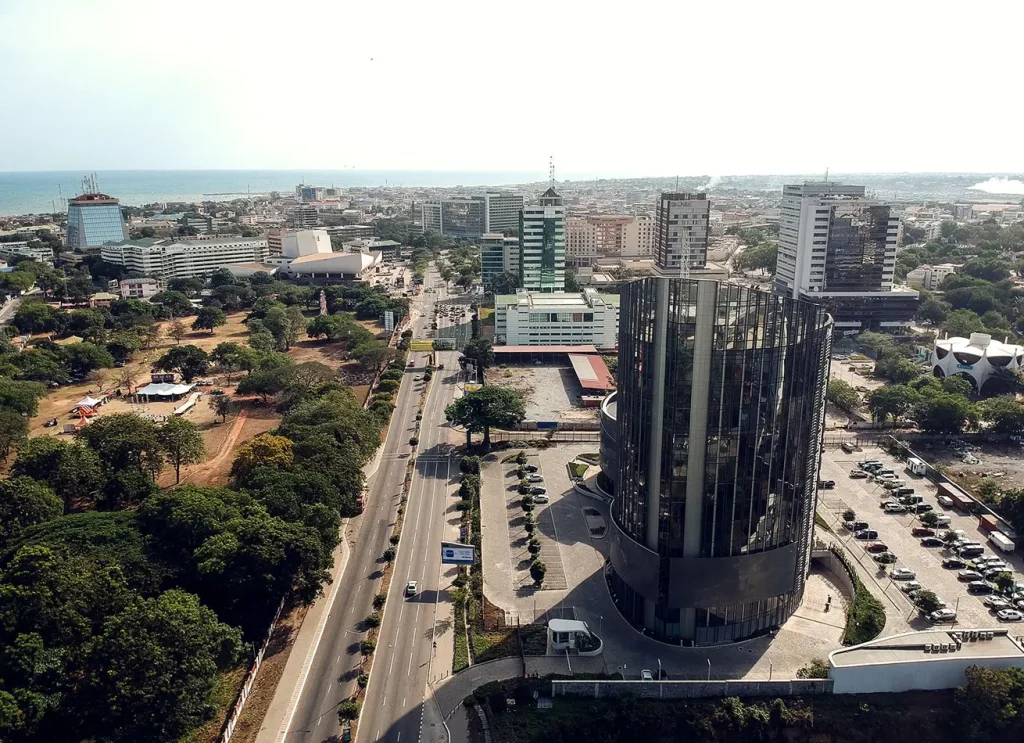There are several potential outcomes of doing business in Ghana, some of which are:
Growing market: Ghana has a population of over 31 million people, with a growing middle class, which makes it a potentially lucrative market for businesses.
Favorable business climate: Ghana has made significant progress in improving its business climate, with reforms to streamline business registration, reduce bureaucratic red tape, and increase access to credit.
Natural resources: Ghana is rich in natural resources, including gold, oil, timber, and cocoa, which can provide opportunities for businesses in these industries.
Stable political environment: Ghana is known for its stable political environment, which can provide a secure and predictable business environment for investors.
Strategic location: Ghana is located in West Africa, which is an increasingly important region for trade and investment, with access to several key markets in the sub-region. However, like any country, doing business in Ghana also has its challenges, including inadequate infrastructure, corruption, and a shortage of skilled workers in some industries. It’s important for businesses to carefully evaluate these factors and conduct thorough market research before investing in Ghana.
Free trade agreements: Ghana has signed various free trade agreements that make it an attractive destination for businesses that want to tap into the larger African market. For instance, Ghana is a member of the African Continental Free Trade Area (AfCFTA), which creates a single market for goods and services across the continent.
Government support: The Ghanaian government has introduced various initiatives and policies to support businesses, particularly small and medium-sized enterprises (SMEs). These initiatives include tax incentives, credit facilities, and technical assistance to help SMEs grow and thrive.Ghana is a country located in West Africa that offers a lot of opportunities for business ventures. The country has a diverse and rapidly growing economy that is increasingly becoming more attractive to foreign investors. In this article, we will explore some of the key factors to consider when doing business in Ghana.
Legal Environment: Before starting any business in Ghana, it is essential to understand the country’s legal environment. Ghana has a stable political climate and an independent judiciary, which makes it a favorable environment for business. The country’s legal system is based on English common law, and there are clear laws and regulations governing business activities.
Business Culture: Ghana has a unique business culture that may differ from what you are accustomed to in your home country. It is important to understand the country’s culture, social norms, and customs. Doing business in Ghana requires building relationships, and business transactions are often done based on trust and mutual respect. It is crucial to take the time to build relationships with potential business partners and understand their needs.
Market Opportunities: Ghana is one of the fastest-growing economies in Africa, with a market of over 31 million people. The country offers several opportunities for foreign investors in areas such as agriculture, mining, manufacturing, and tourism. Ghana is also a hub for the West African sub-region, making it a strategic location for businesses targeting the region.
Infrastructure: Ghana has made significant strides in developing its infrastructure, and the government continues to invest in various sectors such as transport, energy, and communication. The country has a well-developed road network that connects the major cities, and the ports of Tema and Takoradi offer excellent sea access. The country has a reliable electricity supply, and the government is promoting renewable energy sources such as solar power.
Workforce: Ghana has a young and dynamic workforce, with over 60% of the population under the age of 25. The country has a high literacy rate, and many Ghanaians are fluent in English, which is the official language. However, there is still a need for skills development, particularly in the technical and vocational fields. Employers may need to invest in training and development to ensure that their workforce has the necessary skills to meet their business needs.
Investment Incentives: The Ghanaian government offers several incentives to attract foreign investors. These include tax holidays, duty-free imports for plant and machinery, and other incentives targeted at specific sectors such as agriculture and tourism. Investors can also take advantage of the Ghana Investment Promotion Centre, which offers support and guidance to investors.
In conclusion, Ghana offers excellent opportunities for foreign investors seeking to do business in West Africa. However, it is essential to understand the legal environment, business culture, market opportunities, infrastructure, workforce, and investment incentives. With careful planning and the right partners, doing business in Ghana can be a rewarding experience.


